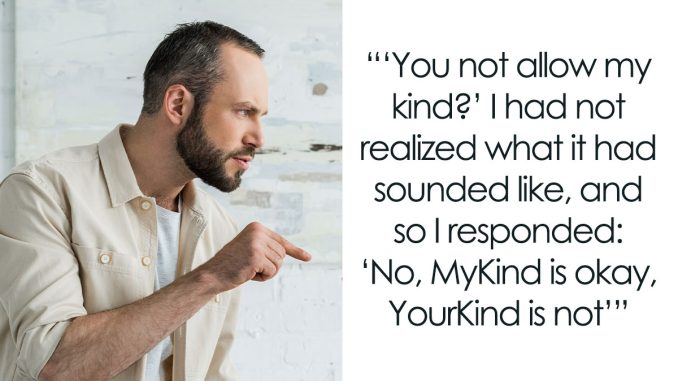
Many companies put a lot of thought into their product names, but even then, there’s no telling how they might be used or misused under certain circumstances. One barista’s story of a hilarious but unfortunate misunderstanding showcased how product names can earn dubious distinctions in unsuspected ways.
It’s truly unfortunate that the man affected experienced what he thought to be racism, but we can console ourselves by the fact that this was all just a comical misunderstanding. But first, let’s see what actually happened in the first place.
The smallest misunderstanding can sometimes have unfortunate but hilarious consequences
Image credits: Pavel Danilyuk (not the actual photo)
One barista found that out the hard way when they accidentally made what their customer thought was a racist remark
Image credits: Madison Inouye (not the actual photo)
Image credits: LightFieldStudios (not the actual photo)
Image credits: LuciusD**kusMaximus
Though this was just a misunderstanding, racism in the service sector is very real
It can always be tricky to get things right when dealing with customers in the service sector, but this one is a tough case! While the product name could have been better, the author of the post also could’ve taken a moment to realize what might happen if they used the name of the coffee the way that they did. Compounding the issue was also the fact that the man did not actually have the type of coffee that the barista was talking about and the fact that their interlocutor was a small child who may not have correctly understood the context of the situation.
The issue that the unfortunately rebuffed customer thinks he faces, however, is still an issue for many people. In fact, it is an issue both for customers and for workers in the service sector. A study by the Harvard Business School, for example, found that many customers were probably facing different qualities and quantities of service based on their perceived race – before ever even meeting the service staff communicating with them.
“Hotel employees were more likely to respond to messages that seemed to come from a White sender than those from a Black or Asian sender,” according to the HBS study. “Hotel representatives responded to about 43 percent of messages coming from a stereotypically white name, versus 40 percent from a stereotypically Black name, and 36 percent from a stereotypically Asian name.”
“‘We found discrimination in response rates on the basis of race,’ says Feldberg. ‘But what is particularly striking is that it wasn’t just whether people responded to the requests that we sent; it’s that the quality of the information that people received varied.’”
Given that racism is still prevalent in the service sector in 2023, we can understand why the would-be customer got confused and upset.
Commenters were generally supportive and shared their own similar experiences
The post Foreigner Thinks He’s Being Kicked Out Of A Coffee Shop Because Of His Ethnicity, Barista Realizes His Mistake Too Late first appeared on Bored Panda.
